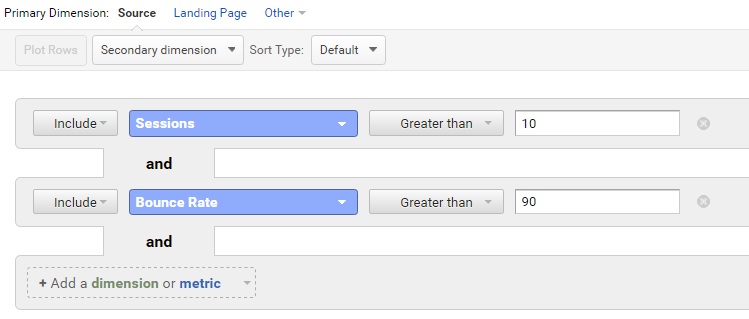Spam referrals - have you been affected?
Have you ever reflected over why sometimes there is a big difference in your traffic flow from one day to another? Or why on days when it is usually quiet all of a sudden there is a heap of users coming in? Maybe you have not looked closer into the traffic flow at all… Then now would be a great time to do so, to find out whether the data you are collecting is actually built on real visits or if there could be fake traffic hiding in there!
Spam traffic
Part of the traffic that your data in Google Analytics is built on could be spam referrals. What that entails is either visitors that are not real or traffic that does not even visit your site, but still gets registerd as a visit. Removing and preventing spam traffic could be of great importance to your website and the decisions that will affect the future of your business, as you would have more accurate statistics at hand.
Types of spam
The types of spam you could end up identifying in your data are either spam referrals or ghost referrers. Spam referrals will automatically search through websites and therefore end up messing up your data as they are not real visitors. Ghost referrers do not even visit your site but end up getting registered as a visit anyway.
Identify spam traffic
Before you start looking for spam referral links in your data remember not to click on them. To visit such a site could be harmful for your computer, the link should rather be copied and researched with the help of a search engine. Usually you can find others that have had the same problems with these links and will let you know what type of spam you are dealing with. Make sure you have an antivirus programme installed when handling such links and for extra safety use Chrome as your web browser, as it is working fast to discover viruses.
Finding spam referral links in your data
To see the links from which your visitors come from to your site, go to your Google Analytics account and look up Acquisition > All Traffic > Referrals in the left hand side menu. To get a quick overview of the links you are looking for, click on ‘advanced’ to filter your results.

Choosing to Include sessions greater than 10 will filtrate all sessions from a specific link that has occurred at least 10 times. When dealing with a great amount of data, sessions that occur less than 10 times will not have a great influence on it, even if there might be spam links amongst them. Also choose to Include bounce rate greater than 90, as it is usually high for most spam referrals due to the fact that they are not real visitors. Simply put, you are looking for fake visitors that visit your site frequently but have no interest in your site.
Not taking action will leave you with unreliable data, and as new spam referrals are created daily it is definitely worth looking into regularly. As you cannot change what data has been collected historically, complete the form below and start working with more accurate statistics today!
